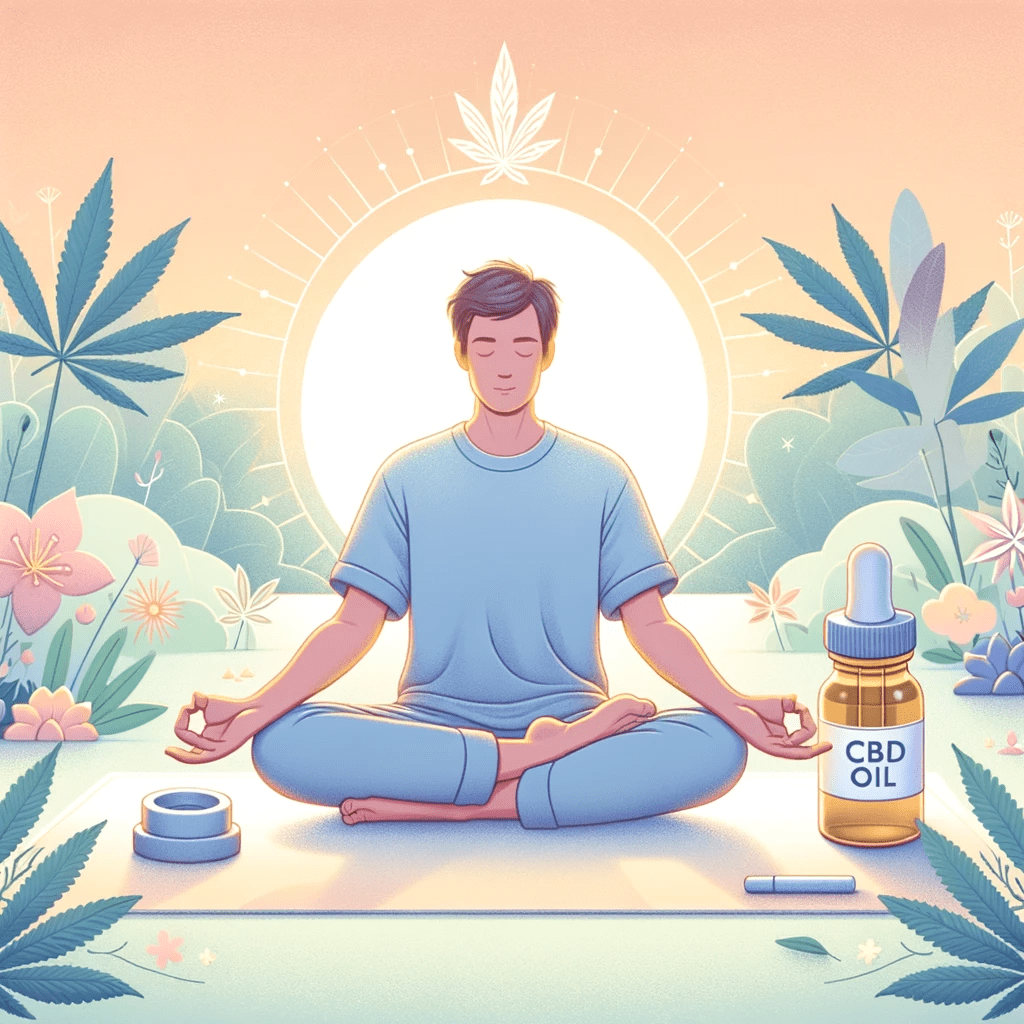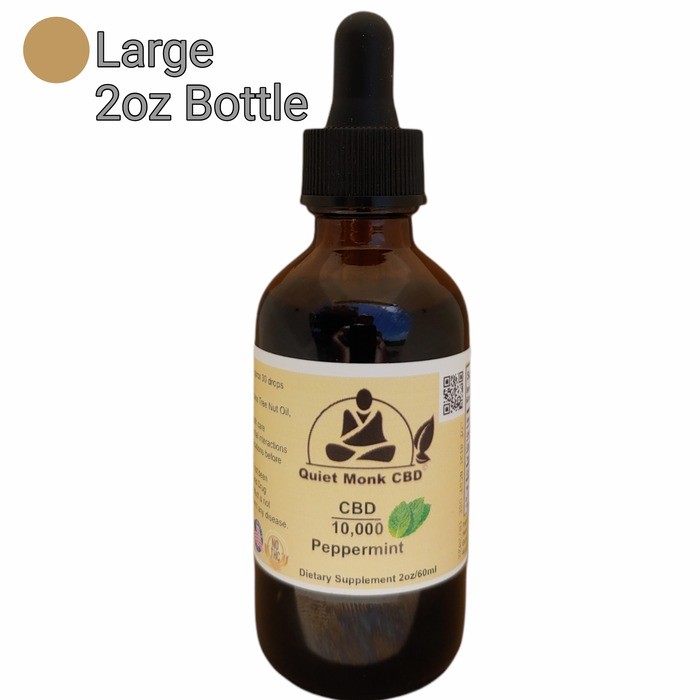
Depression is a complex mental health condition that affects millions of people worldwide. While there are various treatment options available, CBD oil has gained attention for its potential benefits in alleviating symptoms of depression. However, finding the right CBD oil dosage for depression can be a challenging task. This comprehensive guide will help you understand the effects of CBD oil on depression and provide insights into determining the appropriate dosage.
In the pursuit of holistic well-being, individuals grappling with depression often explore a range of treatment options. For those facing severe depression or struggling with substance abuse alongside their mental health challenges, inpatient drug rehab programs can also provide a comprehensive and structured approach to recovery. These facilities offer a supportive environment where individuals receive personalized therapeutic interventions, counseling, and medical supervision.
CBD isn’t a cure all and may not work for everyone. Always consult with your doctor before taking CBD. That being said some people do find CBD to be helpful.
Understanding CBD Oil and its Effects on Depression
CBD, or cannabidiol, is a compound derived from the cannabis plant. Unlike THC, another prominent compound in cannabis, CBD does not induce a “high” effect. CBD interacts with the body’s endocannabinoid system, which plays a crucial role in regulating various physiological processes. Studies have suggested that CBD oil may have antidepressant-like effects, potentially influencing the brain’s serotonin receptors and promoting a sense of well-being.
How Does CBD Oil Work in the Body?
CBD oil interacts with the body’s endocannabinoid system, which consists of receptors located throughout the body. These receptors are involved in regulating mood, stress response, and other functions. CBD oil may modulate the activity of these receptors, leading to potential mood-enhancing effects and relief from symptoms of depression.
What Are the Potential Benefits of CBD Oil for Depression?
Research suggests that CBD oil may offer several potential benefits for individuals with depression. These include reducing anxiety, improving sleep quality, promoting relaxation, and regulating mood. CBD oil may have anti-inflammatory properties, which could contribute to its overall effects on mental health.
Are There Any Risks or Side Effects of CBD Oil for Depression?
While CBD oil is generally well-tolerated, it may cause side effects in some individuals. These can include dry mouth, dizziness, diarrhea, and changes in appetite. CBD drops and oil may also interact with certain medications, so it is essential to consult with a healthcare professional before starting CBD oil for depression.
Factors to Consider When Finding the Right CBD Oil Dosage for Depression
Determining the optimal CBD oil dosage for depression involves considering various factors. These include weight and body composition, the severity of depression symptoms, individual sensitivity to CBD, and the use of other medications or supplements. Finding the right dosage may require some trial and error, as it can vary for each person.
Methods for Finding the Right CBD Oil Dosage
Several approaches can help you find the appropriate CBD oil dosage for depression. Starting with a low dose and gradually increasing it allows you to assess your body’s response. Utilizing a CBD dosage calculator can provide a starting point based on your weight and the concentration of CBD in the oil. It is also important to consult with a healthcare professional who can provide personalized guidance.
Monitoring and Adjusting the CBD Oil Dosage
When using CBD oil for depression, it is crucial to monitor changes in symptoms and adjust the dosage accordingly. Keeping a dosage journal can help track the effects of different dosages over time. Be aware of potential interactions with other medications and consult with a healthcare professional if needed.
By understanding CBD oil and its effects on depression and considering various factors, you can work towards finding the right CBD oil dosage that is best suited for you. Remember to consult with a healthcare professional to ensure safe and effective use of CBD oil for depression management.
Key takeaway:
- Finding the right CBD dosage for depression requires considering factors such as weight, severity of symptoms, individual sensitivity, and other medications or supplements being taken.
- To find the right CBD dosage, start with a low dose and gradually increase it, use a CBD dosage calculator, consult with a healthcare professional, and monitor and adjust the dosage based on changes in symptoms and potential interactions with other medications.
- Using CBD drops for depression can potentially provide benefits, but it’s important to be aware of potential risks and side effects. CBD oil operates by interacting with the body’s endocannabinoid system, which may help alleviate depression symptoms.
Understanding CBD Oil and its Effects on Depression
CBD oil, a natural remedy, offers promise in alleviating the symptoms of depression. Research suggests that CBD interacts with serotonin receptors in the brain, which can help regulate mood and reduce feelings of depression. Numerous studies have indicated that CBD oil enhances feelings of well-being in individuals with depression. It is important to note, however, that CBD oil is not a cure for depression and should never replace prescribed medications or therapy. The effects of CBD oil on depression may differ from person to person, so it is crucial to consult with a healthcare professional for personalized advice. By understanding CBD oil and its effects on depression, individuals can make informed decisions about incorporating it into their treatment plans.”)
How Does CBD Oil Work in the Body?
CBD oil has a significant impact on the body by interacting with the endocannabinoid system (ECS). The ECS, which is composed of receptors, enzymes, and endocannabinoids, plays a crucial role in regulating various bodily processes, including mood, sleep, appetite, and pain sensation.
When CBD oil is ingested, it specifically binds to the cannabinoid receptors in the ECS, especially the CB1 and CB2 receptors. This interaction works to modulate the functioning of these receptors and influence the release of neurotransmitters in the brain.
One of the ways CBD oil operates within the body involves increasing the availability of natural endocannabinoids, aiding in the regulation of mood and stress levels. Additionally, it can hinder the reuptake of certain neurotransmitters, such as serotonin, resulting in elevated brain levels and potentially enhancing mood.
Another beneficial aspect of CBD oil is its anti-inflammatory properties. These properties can contribute to managing symptoms of depression since chronic inflammation has been linked to mental health disorders. By reducing inflammation, CBD oil can improve overall well-being.
It is crucial to acknowledge that although CBD oil holds promise in symptom management of depression, further research is necessary to fully comprehend its effects and determine optimal dosing. Consulting with a healthcare professional is highly recommended for safe and effective usage.
What Are the Potential Benefits of CBD Oil for Depression?
- Reduced symptoms: CBD oil has shown promise in reducing symptoms of depression such as anxiety, sadness, and lack of interest in activities.
- Improved mood: CBD oil has been reported to improve mood and promote feelings of positivity and well-being.
- Better sleep: Many individuals with depression also suffer from sleep disturbances. CBD oil may help improve sleep quality and duration.
- Reduced inflammation: CBD oil has anti-inflammatory properties that may help reduce inflammation in the brain, which has been linked to depression.
- Enhanced serotonin levels: CBD oil may help boost serotonin levels in the brain, which is a neurotransmitter that plays a key role in regulating mood.
- Minimized side effects: Unlike traditional antidepressant medications, CBD oil is generally well-tolerated and has fewer side effects.
- Non-addictive: CBD oil is non-addictive and does not produce the same withdrawal symptoms as some antidepressant medications.
- Improved overall well-being: CBD oil has the potential to enhance overall well-being and quality of life for individuals with depression.
Using CBD oil for depression should be done under the guidance of a healthcare professional and may require adjusting the dosage based on individual needs and response. It is important to consult with a healthcare professional to ensure the safe and effective use of CBD oil for depression.

Are There Any Risks or Side Effects of CBD Oil for Depression?
When considering the use of CBD oil for depression, it’s important to address the question: Are there any risks or side effects of CBD oil for depression? It is crucial to be aware of the potential risks and side effects associated with CBD oil.
Some people may experience temporary changes in appetite, either an increase or decrease, after using CBD oil for depression.
Drowsiness can be a possible side effect of CBD oil, especially when taken in higher doses. It is advised to avoid activities such as driving or operating heavy machinery until you know how CBD oil affects you.
CBD oil can cause a dry mouth sensation, commonly referred to as cottonmouth.
It is worth noting that CBD oil may lower blood pressure, which could be a concern for individuals already with low blood pressure or those taking blood pressure medications.
CBD oil may interact with other medications, particularly those metabolized by the liver. To ensure safety, consulting with a healthcare professional before using CBD oil while also taking medications is essential.
Although CBD oil is generally well-tolerated, some individuals may experience psychological effects such as anxiety or changes in mood.
It is important to acknowledge that these risks and side effects are typically mild and temporary. However, if you encounter any severe or persistent side effects, it is recommended to discontinue the use of CBD oil and consult with a healthcare professional.
Factors to Consider When Finding the Right CBD Oil Dosage for Depression
When it comes to finding the right CBD oil dosage for depression, there are several important factors to keep in mind. In this section, we’ll explore these factors and how they play a crucial role in determining the appropriate dosage. From your weight and body composition to the severity of your depression symptoms, we’ll delve into the key considerations that can guide you in finding the optimal CBD dosage. We’ll also examine the impact of individual sensitivity to CBD and the potential interactions with other medications or supplements.
Weight and Body Composition
When determining the appropriate dosage of CBD oil for depression, it is crucial to take into account factors such as weight and body composition. The weight of an individual can impact the effectiveness of the CBD oil dosage. Generally, individuals with a higher body weight may require higher doses to achieve the desired effects. Additionally, the composition of the body, including the distribution of muscle and fat, can influence how CBD is metabolized. People with a higher muscle mass may have a higher metabolic rate and may need higher doses of CBD oil. Understanding one’s weight and body composition can aid in determining the initial dosage of CBD oil for depression. It is important to note that individual responses to CBD can vary, so it may be necessary to adjust the dosage based on personal experience and consultation with a healthcare professional.
Severity of Depression Symptoms
When determining the appropriate CBD oil dosage for depression, it is crucial to take into account the severity of depression symptoms. Here are some important points to remember:
- The severity of symptoms can vary from person to person, with some individuals experiencing mild symptoms while others have more severe symptoms.
- It is essential to evaluate how depression affects daily functioning and quality of life. Those with more severe symptoms may require a higher dosage more than just a 1000mg CBD oil. You may need to go with the 2000mg cbd oil or even the 5000mg.
- A higher severity of symptoms may indicate an increased imbalance in the endocannabinoid system, which can be regulated by CBD oil. In such cases, a higher dosage may be necessary to effectively address the symptoms.
- Regular monitoring of the response to CBD oil is crucial, and the dosage should be adjusted accordingly. If symptoms persist or worsen, it may be necessary to increase the dosage under the guidance of a healthcare professional.
- For individuals with severe symptoms, combining CBD oil with other treatment modalities like therapy or medication may be beneficial. Consulting with a healthcare professional is important to determine the most suitable treatment plan.
By carefully considering the severity of depression symptoms, individuals can discover the optimal dosage of CBD oil that effectively tackles their specific needs and alleviates their symptoms.

Individual Sensitivity to CBD
Individual sensitivity to CBD plays a crucial role when it comes to using CBD oil for depression. Each person’s reaction to CBD can vary, depending on factors such as their metabolism, body chemistry, and overall health. It is important to note that CBD affects everyone differently, and what works for one person may not work the same for another.
When considering individual sensitivity to CBD, it is essential to start with a low dosage and gradually increase it until the desired effects are achieved. This approach allows individuals to gauge their personal response to CBD without overwhelming their system.
It is also recommended to consult with a healthcare professional who can provide guidance based on their medical history and current medications. Monitoring symptoms and keeping a dosage journal can help track any changes or improvements experienced with different CBD dosages.
Individuals should be aware of potential interactions with other medications they may be taking and consider this when determining the appropriate CBD oil dosage. By taking these factors into account and being mindful of their individual sensitivity to CBD, individuals can find the right CBD oil dosage that works best for their specific needs.
Other Medications or Supplements Being Taken
When considering the appropriate dosage of CBD oil for depression, it is essential to take into account any other medications or supplements being used. This is crucial because certain medications and supplements have the potential to interact with CBD oil, leading to adverse effects.
It is recommended to consult with a healthcare professional before starting CBD oil if you are currently using any other medications or supplements. They can offer guidance on potential interactions and assist in determining the suitable dosage.
Maintaining a record of the medications and supplements being taken, along with any changes in symptoms, can also be beneficial in monitoring the effects of CBD oil. This way, any potential interactions or adverse effects can be promptly identified and addressed.
Although CBD oil is generally considered safe, it is always prudent to exercise caution and seek professional advice when other medications or supplements are involved. By being aware of potential interactions and taking necessary precautions, individuals can find the appropriate CBD oil dosage for depression that caters to their specific needs and circumstances.
Jane, who was coping with depression, decided to incorporate CBD oil as an additional form of support. She had been using prescription medication for her depression and wanted to ensure there would be no negative interactions. Jane reached out to her healthcare professional, who provided her with advice on the potential risks and benefits of incorporating CBD oil into her treatment plan. They discussed her current medication regimen and made adjustments to prevent any adverse effects. Jane started with a low dosage of CBD oil and diligently recorded any changes in her symptoms or side effects. With the guidance of her healthcare professional and careful monitoring, Jane was able to find the appropriate CBD oil dosage that complemented her existing treatment and provided the desired relief from her depression symptoms.
Methods for Finding the Right CBD Oil Dosage
Finding the perfect CBD oil dosage for depression can be a daunting task, but fear not! In this section, we will explore various methods that can help you determine the right CBD oil dosage for your needs. From starting low and gradually increasing to utilizing CBD dosage calculators and seeking guidance from healthcare professionals, we’ve got you covered. We’ll also discuss the importance of monitoring and adjusting the CBD oil dosage to ensure optimal results. So, let’s dive in and find the ideal dosage to support your mental well-being!
Start Low and Gradually Increase
When starting to use CBD oil for depression, it is crucial to start with a low dosage and gradually increase it over time. This approach allows your body to adjust to the effects of CBD and helps you find the optimal dosage for your individual needs.
| Begin by taking a small amount of CBD oil, such as 5-10 milligrams, once or twice a day. This will allow your body to get accustomed to the CBD and minimize any potential side effects. Observe and assess: Pay close attention to how your body responds to the initial dosage. Monitor your symptoms and mood changes to determine if the CBD oil is having a positive effect on your depression. Gradually increase the dosage: If you feel that the initial dosage is not providing the desired effects, you can gradually increase the dosage by 5-10 milligrams every week. This gradual increase allows you to find the optimal dosage without overwhelming your body. Continue assessing and adjusting: As you increase the dosage, continue to observe and assess how your body responds to the CBD oil. Monitor any changes in your symptoms and mood, and make adjustments as necessary to find the dosage that works best for you. |
Remember, every individual is unique, and the optimal dosage may vary. It is important to consult with a healthcare professional who can provide guidance and monitor your progress. Finding the right CBD oil dosage for depression requires patience and careful observation, but it can ultimately help you manage your symptoms and improve your overall well-being.
Use a CBD Dosage Calculator
To determine the appropriate dosage of CBD oil for depression, it can be helpful to use a CBD dosage calculator. This tool allows you to use a CBD dosage calculator to input your specific information and provides a recommended dosage based on factors such as your weight, the severity of your symptoms, and your sensitivity to CBD.
| Factor | Information |
|---|---|
| Weight and Body Composition | The calculator takes into account your weight and body composition as these factors can influence how your body metabolizes CBD. |
| Severity of Depression Symptoms | The severity of your symptoms can guide the recommended dosage. Higher severity may require a higher dose. |
| Individual Sensitivity to CBD | Everyone reacts differently to CBD. The calculator considers your sensitivity to determine an appropriate dosage. |
| Other Medications or Supplements Being Taken | Some medications or supplements can interact with CBD, so the calculator takes this into account to determine a safe and effective dosage. |
Using a CBD dosage calculator can provide you with a starting point for your CBD oil dosage. It’s important to remember that everyone is different, and individual experimentation and adjustment may still be necessary. Consulting with a healthcare professional and monitoring your symptoms closely are also recommended when using CBD oil for depression.

Consult with a Healthcare Professional
When considering the right CBD oil dosage for depression, it is crucial to consult with a healthcare professional. Consulting with a healthcare professional is important because they can offer expert advice based on your individual circumstances and medical history. Here are some reasons why consulting with a healthcare professional is crucial:
- Expert advice: A healthcare professional, with specialized knowledge and experience in treating mental health conditions, including depression, can assess your specific situation and provide personalized recommendations for CBD oil dosage.
- Safety considerations: Consulting with a healthcare professional is important to ensure that CBD oil is safe for you to use, especially taking into account any existing medical conditions or medications you may be taking. They can guide you on potential interactions or risks associated with CBD oil.
- Optimal dosage determination: Determining the appropriate CBD oil dosage for depression can be complex. By consulting with a healthcare professional, they can assess factors such as the severity of your symptoms, your sensitivity to CBD, and any other medications or supplements you are taking, to help you find the most effective dosage.
- Monitoring and adjustment: It is important to regularly monitor your symptoms and response to CBD oil. By consulting with a healthcare professional, they can track your progress and make any necessary adjustments to the dosage or treatment plan.
Remember, consulting with a healthcare professional is essential to ensure the safe and effective use of CBD oil for depression. They can provide personalized advice, monitor your progress, and support you throughout your treatment journey.
A person struggling with depression consulted with a healthcare professional to explore CBD oil as a potential treatment option. Through open and honest communication, the healthcare professional was able to assess the person’s medical history and develop a tailored dosage plan. Regular check-ins and adjustments to the dosage were made based on the person’s response and symptom improvement. The healthcare professional’s expertise and guidance played a crucial role in the person’s journey towards managing their depression symptoms effectively with CBD oil.
Monitoring and Adjusting the CBD Oil Dosage
When it comes to finding the right dosage for depression, monitoring and adjusting the CBD oil dosage is crucial. Follow these steps to ensure optimal results:
- Regularly monitor your symptoms: Pay attention to any changes in symptoms to assess if there are improvements or worsening. This will help you determine the effectiveness of the current dosage and if any adjustments are necessary.
- Maintain a dosage journal: Keep a record of the CBD oil dosage you take and its corresponding effects on your symptoms. This journal will provide valuable insights into the effectiveness of different dosages and assist in future adjustments.
- Consider potential interactions with other medications: It is important to be aware of any possible interactions between CBD oil and other medications or supplements you may be taking. Consulting with your healthcare professional will ensure a safe and effective combination.
By closely monitoring your symptoms, maintaining a dosage journal, and being mindful of potential interactions with other medications, you can effectively adjust the CBD oil dosage and optimize its benefits for depression.
Pay Attention to Changes in Symptoms
- When using CBD oil for depression, pay attention to changes in symptoms and monitor your body’s response. Start with a low dosage and gradually increase it over time to gauge its effects on your symptoms. Observe any improvements or worsening of your condition.
- To track your symptoms before and after taking CBD oil, keep a symptom journal. This will help you identify patterns and determine the optimal dosage for your needs. Additionally, consult with a healthcare professional before starting any new treatment, including CBD oil.
- If you are taking other medications or supplements, be aware of potential interactions with CBD oil. Discuss this with your healthcare professional for guidance.
One individual who suffered from depression found that paying attention to changes in symptoms when using CBD oil was crucial in finding the right dosage. By starting with a low dosage and closely monitoring their symptoms, they were able to determine the optimal amount of CBD oil that alleviated their depressive symptoms. Keeping a symptom journal allowed them to track the effects over time and make adjustments as needed. Consulting with a healthcare professional provided additional guidance and support throughout their journey with CBD oil for depression.
Keep a Dosage Journal
One crucial step in determining the appropriate dosage of CBD oil for managing depression is to maintain a dosage journal. This method enables you to meticulously record your usage and closely observe the impact of CBD oil on your symptoms. Here is a step-by-step guide to keeping a dosage journal:
- Initiate by documenting the date and time of each CBD oil administration.
- Indicate the dosage amount in milligrams (mg) for every individual dose.
- Elaborate on any alterations or enhancements in your depression symptoms subsequent to consuming the CBD oil.
- Be attentive to any potential side effects or unfavorable reactions that you may encounter.
- Track other factors that might influence your symptoms, such as stress levels, sleep patterns, or alterations in medication.
- Regularly review your dosage journal and identify any recurring patterns or trends in how the CBD oil impacts your symptoms.
- Utilize your dosage journal as a point of reference when discussing your CBD oil usage with a healthcare professional.
- Make adjustments to your dosage as necessary based on the information documented in your journal and the guidance provided by your healthcare provider.
- Stay mindful of any possible interactions between CBD oil and other medications you may be taking, and meticulously document them in your journal.
Maintaining a dosage journal can offer valuable insights into the effectiveness of CBD oil in alleviating your depression symptoms and enable you to fine-tune your dosage for optimal benefits.
Be Aware of Potential Interactions with Other Medications
When using CBD drops and oil for depression, it’s crucial to be aware of potential interactions with other medications. Here are some important considerations:
- Consult your healthcare professional: Before starting any CBD oil regimen, it’s vital to consult with a healthcare professional, especially if you’re already taking medications or supplements. They can assess potential interactions and provide guidance.
- Research specific medications: Some medications may interact with CBD oil due to their effects on the liver and how they are metabolized. It’s important to research and understand the potential interactions of your current medications with CBD oil.
- Adjust dosages if needed: Depending on the specific interactions, you may need to adjust the dosages of either CBD oil or your other medications. Your healthcare professional can help you determine appropriate dosages.
- Monitor for changes in symptoms: Keep a close eye on any changes in your symptoms or side effects after starting CBD oil. If you notice any adverse effects, it’s essential to consult your healthcare professional immediately.
- Keep a medication journal: Document all the medications and dosages you are taking, including CBD oil. This can assist you and your healthcare professional in tracking any potential interactions or side effects.
- Be proactive in communication: Inform your healthcare professional about any changes in your medication regimen or if you experience any unusual side effects. Open and transparent communication is key to ensuring your well-being.
By being aware of potential interactions with other medications and working closely with your healthcare professional, you can safely incorporate CBD oil into your depression treatment plan.
Some Facts About Finding the Right CBD Oil Dosage for Depression: A Comprehensive Guide:
- ✅ CBD oil dosage for depression varies depending on individual factors such as body weight and the severity of symptoms. (Source: Our Team)
- ✅ Gradually increasing the CBD oil dosage is recommended to find the optimal amount for depression treatment. (Source: Our Team)
- ✅ It’s important to consult with a healthcare professional to determine the right CBD oil dosage for managing depression. (Source: Our Team)
- ✅ Finding the right CBD oil dosage for depression may involve trial and error to find what works best for each individual. (Source: Our Team)
- ✅ The concentration of CBD in the oil should be considered when determining the appropriate dosage for depression treatment. (Source: Our Team)

Frequently Asked Questions
Question: What is the process of determining the correct dosage of CBD oil for depression?
Determining the correct dosage of CBD oil for depression involves considering factors such as body weight, the severity of symptoms, and the concentration of CBD in the product. It is recommended to start with a smaller dosage and gradually increase it until the desired effect is achieved. Consulting with a qualified physician can also provide guidance in finding the right CBD oil dosage for depression.
Question: Are there any official recommendations for the safe and effective dose of CBD oil for depression?
Currently, there are no official recommendations from the Food and Drug Administration (FDA) for the dosage of CBD oil for depression. Due to the lack of federal regulations, it is important to start small and track the effects of CBD tinctures on depression symptoms. Working with a healthcare professional can help determine the appropriate starting dose and make adjustments as necessary.
Question: Can CBD drops provide therapeutic benefits for individuals with depression?
CBD oil has shown promise in reducing anxiety and depression symptoms, improving sleep, and providing relief from pain and inflammation. While more research is needed to fully understand the effects of CBD on depression, many individuals have reported positive experiences with incorporating CBD oil into their wellness regimens. It is important to note that CBD oil should not replace any prescribed medications without consulting a doctor.
Question: What are the different CBD consumption methods available for depression?
CBD oil can be consumed using various methods, including oils and tinctures, edibles (such as gummies), topicals (creams and salves), and capsules. Each method has its own absorption rate and onset time, which can influence the effectiveness and duration of CBD’s effects. Consulting with a healthcare professional can help determine the most suitable CBD consumption method for depression.
Question: What are the potential health benefits of CBD oil for individuals with depression?
CBD oil may offer potential health benefits for individuals with depression, including reducing anxiety and improving sleep. Additionally, CBD oil has been studied for its effects on conditions such as Alzheimer’s disease, multiple sclerosis, and inflammatory bowel disease. While scientific evidence is still emerging, CBD oil shows promise in providing relief from various symptoms associated with depression.
Question: Can I purchase CBD oil online without any federal oversight or regulations?
Yes, it is possible to purchase CBD oil online without federal oversight or regulations. However, it is important to be cautious when making internet purchases, as the quality and accuracy of the product may vary. To ensure safety and efficacy, it is advisable to choose CBD products from reputable brands that adhere to industry best practices and provide transparency in their ingredients and manufacturing processes.

